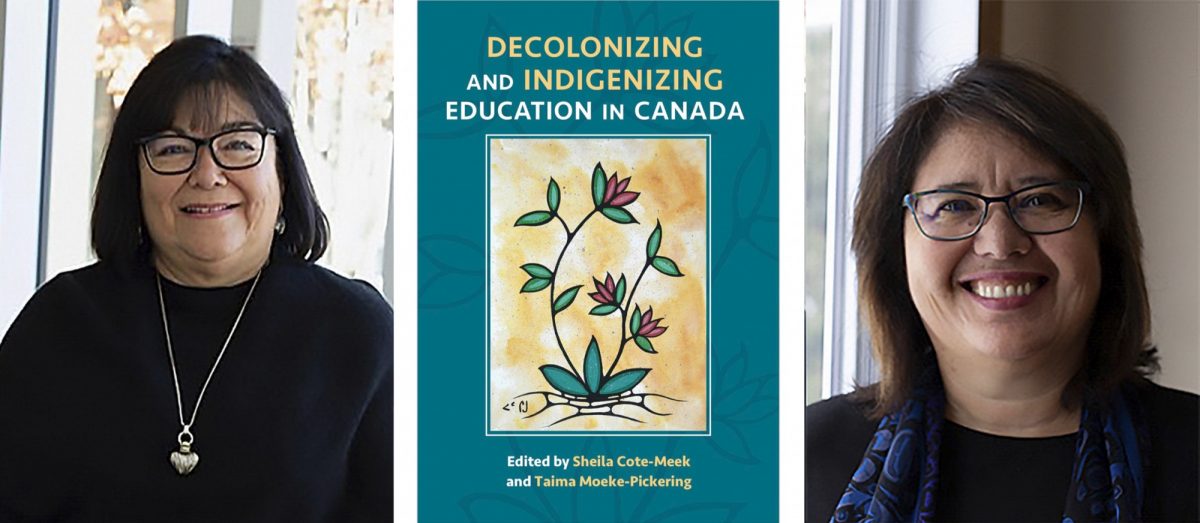
Co-editors of "Decolonizing and Indigenizing Education in Canada," Taima Moeke-Pickering and Sheila Cote-Meek offer educators approaches to reconciliation at their online lecture, April 8.
Educators facing hard truths
Reconciling Canada’s history path to decolonizing, Indigenizing education
When it comes to decolonizing and Indigenizing education, one tough topic confronts every educator, says Taima Moeke-Pickering.
Truth is talked about a lot in education, but she asks, what does it mean?
“Truth is difficult for some people who don’t want to know the truth about Canada,” she says.
“Truth is difficult for those students who come from certain areas where full-on racism has happened.
“Truth is difficult for black people.
“Truth it is difficult for marginalized people.”
Yet, Moeke-Pickering says another word serves as a gift for learning about our truth: reconciliation.
“So, how do we reconcile ourselves as a professor?
“How do we reconcile ourselves as a researcher?
“How do we reconcile ourselves as a leader of an institution? Or just as a person who lives in Canada?
Approaches to reconciliation
Approaches to these many difficult questions await those attending next week’s lecture, hosted by Moeke-Pickering and Sheila Cote-Meek, co-editors of the book, “Decolonizing and Indigenizing Education in Canada.”
Hosting a lecture of the same title on April 8, the professors offer different perspectives on the topic.
Whereas Moeke-Pickering specializes in applied teaching experiences and perspectives, Cote-Meek’s expertise lies in administration.
‘We can do our part to mobilize change but imagine if we all did that how big that change and impact could be.’
Since the Truth and Reconciliation Commission issued its report with 94 calls to action in 2015, Cote-Meek says she’s seen some progress with hiring Indigenous academics, as well as recruitment and supports for students, but says there is much more work to be done at all levels of education.
“We need representation of Indigenous people across the board—from the board of governors, to the senate, to senior administration, in the faculty, in staff, and so forth,” Cote-Meek says, adding that in order to enact meaningful change, Indigenous decision-makers need to empowered and supported by administration at the highest levels to do so.
“It’s one thing to bring in Indigenous scholars, or senior Indigenous administrators, but if they’re not provided the ability to bring about change—but there’s all of these expectations put on them—it makes it really challenging,” Cote-Meek says. “And it can get quite burdensome and frustrating for an Indigenous person that can see the changes that are needed, but can’t break down some of the barriers that exist in system.”
While the professors teach at the post-secondary level, Moeke-Pickering says that Canadians from all walks of life could benefit from the lecture.
“We can do our part to mobilize change but imagine if we all did that how big that change and impact could be.”
What: Decolonizing and Indigenizing Education in Canada
When: Thursday, April 8, 2021
Time: 6:00 p.m.
Where: Online Zoom lecture. Register here!
For more information, contact:
Charlie McDougall, communications coordinator, Faculty of Education by email: Charlie [dot] McDougall [at] umanitoba [dot] ca






